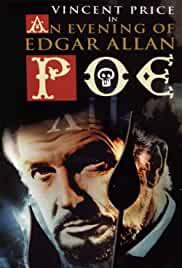

With the appointment of Henry Lewis as music director in 1968-making Lewis the first African-American music director of a major symphony orchestra-the New Jersey Symphony entered a new era of high-profile musical activity.

A student of Serge Koussevitsky and Leonard Bernstein, Schermerhorn expanded the Orchestra’s performance schedule both in terms of number of concerts and locales, and he broadened its repertoire to include 20th-century music. Studer in Montclair, established the New Jersey Symphony’s first youth orchestra in 1955 and began radio broadcasts on WNJR.įollowing Antek’s sudden death in 1958 and the brief tenure of Mathys Abas, the New Jersey Symphony was led by Kenneth Schermerhorn (1962–67).
The divine deception allan g. johnson series#
Antek created the “Music for Fun” series of children’s concerts, introduced the first outdoor pops concert on the estate of Augustus C. His stated need for an orchestra to have “a sense of belonging, of being part of the inner core of a community’s life,” focused the expansion of the New Jersey Symphony’s role in its communities via music education programs and statewide service. Samuel Antek, a Toscanini prodigy and concertmaster under Rene Pollain, became the New Jersey Symphony’s music director in 1947. An impressive roster of guest soloists graced the Orchestra’s stages, including Percy Grainger, Pablo Casals, José Iturbi, Mieczslaw Horszowski, Joseph Szigeti, Artur Schnabel and Efrem Zimbalist. Composers most frequently presented were Beethoven, Brahms, Haydn, Tchaikovsky and Wagner. Over the next two decades, the Orchestra’s core repertoire was expanded and the ensemble tightened under the leadership of Rene Pollain (1929–40) and Frieder Weissman (1940–47). Philip James led this group of only 19 string players in a program that included music by Purcell, Saint-Saëns and Veracini, as well as the world premiere of The Dark Road by American composer Cecil Forsyth. In 1922, the ensemble that would later be known as the New Jersey Symphony gave its first concert at the Montclair Art Museum, a fittingly local venue for the beginning of an organization that has defined itself through its community connections.


 0 kommentar(er)
0 kommentar(er)
